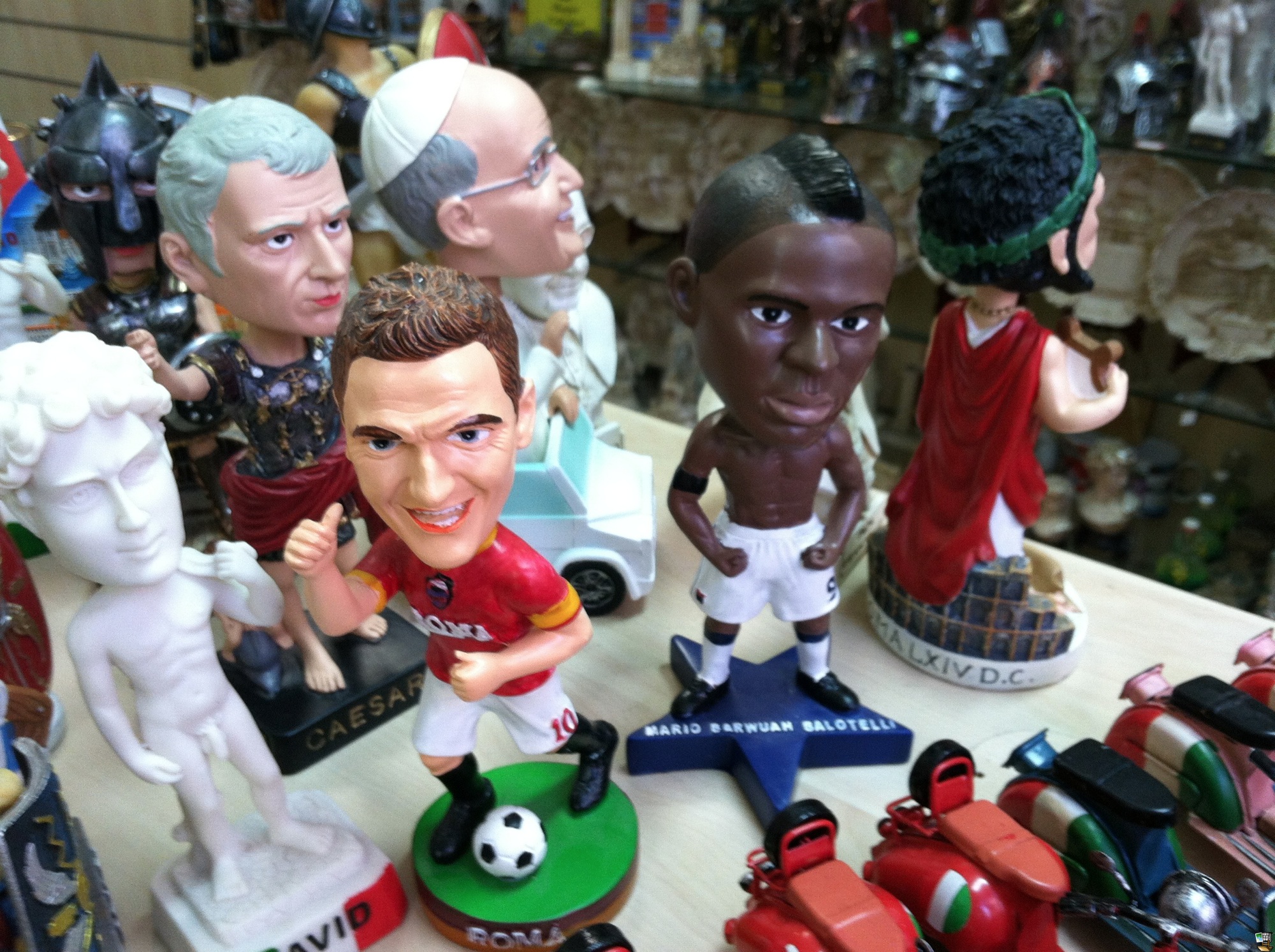
Mario Balotelli, Luis Suárez and Italian racism
|
One star scored the winning goal against England, did nothing much in a loss to Costa Rica, and was replaced at half-time in the decisive game after getting a yellow card for a stupid foul. The other scored the winning goal against England, sat out a loss to Costa Rica due to injury, and committed an outrageous foul that elicited global scorn and got him banned from the remainder of the tournament. Guess which star is being ostracized and singled out as the embodiment of flawed egoism. |
|
One star scored the winning goal against England, did nothing much in a loss to Costa Rica, and was replaced at half-time in the decisive game after getting a yellow card for a stupid foul. The other scored the winning goal against England, sat out a loss to Costa Rica due to injury, and committed an outrageous foul that elicited global scorn and got him banned from the remainder of the tournament. Guess which star is being ostracized and singled out as the embodiment of flawed egoism. Yes, the Black man who plays for the white country. After Italy's elimination from the World Cup, by toothsome Luis Suárez and Uruguay, a tidal wave of angry criticism of Mario Balotelli swept through Italian media and the Internet. Balotelli is accused of being lazy, of not trying, of being unable to control his temper, and committing a stupid foul that forced his coach to bench him at a critical time. The coach, the argument goes, says he was worried that Balotelli would get himself ejected, forcing the team to play with one man down. The irony is that another Italian player, Marchisio, actually did get himself ejected from that same game, and, yet, Marchisio is not blamed for the defeat. A bad call by the referee, Italian pundits moan. Marchisio, by the way, is white. Balotelli is further charged with failing to carry the team into the second round. He was the offense focus of the team. The squad was designed around his considerable skills. This is often the case with great talents. Portugal is designed around Cristiano Ronaldo. He scored one goal, just like Balotelli, and Portugal are also out. Sweden is built around Ibrahimovic, and they didn't even make it to Brazil. Uruguay is structured around Luis Suárez (with all due respect to the talented Edison Cavani), and Suárez’s oral fixation condemned the team to a quick and toothless exit in its next game against Colombia. The failure of these teams has lead to some grousing about their megastars, but no cascade of hate and blame, even in the case of Suarez where global shame is being heaped on the player. After being banned from soccer for the next four months, a penally that even the bite victim — Italian defender Giorgio Chiellini — thinks harsh, Suárez has returned to a mostly supportive, if somewhat chagrined, Uruguay. All of these players are superstars. They receive a disproportionate amount of attention and are paid outrageous sums of money to play, what is in essence, a kid's game. This leads to a deeply ambivalent relationship with everyday fans. But, along with the inevitable envy of riches and celebrity, fed, in some cases, by outsized egos and relentless publicity machines, there is also a baseline of admiration and respect for an jaw-dropping talent. And come World Cup time, there is national pride and solidarity. But not with Balotelli. As soon as the game with Uruguay was over, he was immediately fingered as the culprit by fellow players. Balotelli left the team locker room alone after the loss, and sat on the bus alone while the Italian coach presented his resignation and bade goodbye to the rest of the team. On Italian TV, despite a general consensus the the whole team played badly, only one player was singled out for blame: Super Mario. On the internet, Balotelli was immediately subject to racist rants and posts. This is not unusual, Italian fans regularly greet Balotelli with the chant that "there are no Black Italians.” It is a primal rejection. And Balotelli, by standing up for himself, on and off the soccer pitch, has come to represent a generation of immigrant kids, born in Italy and culturally Italian, but who struggle to be accepted. In a raw post on Instagram, Balotelli responded to a fan's accusation that he had not tried because he was not a real Italian. His response is heartbreaking: I was born in Italy, he writes, and chose to be Italian. He then lashes out at the lack of solidarity he feels from his fellow Italians. Africans are smarter than us, he pleads, they do not turn on their brothers. This last comment, of course, with its temerity of comparing Italians unfavorably to Africans, was perceived as a slap in the face by Italian media. Poisonous, one pundit described his post. Out of bounds, declared a football official. Sadly, what was judged extreme was not the racist bile directed at Balotelli, but his response. After the World Cup fiasco, the Italian national coach and the director of Italy's national football federation have presented their resignations. And still, the witch hunt rages on. Mario Balotelli, a Black Italian, the perfect outsider — too young and rich and talented — is an easy target. Alberto Vourvoulias is Visiting Scholar in Online and Social Media at the American Academy in Rome. His blog is Undocumented Journalism. |
|











LEAVE A COMMENT:
Join the discussion! Leave a comment.